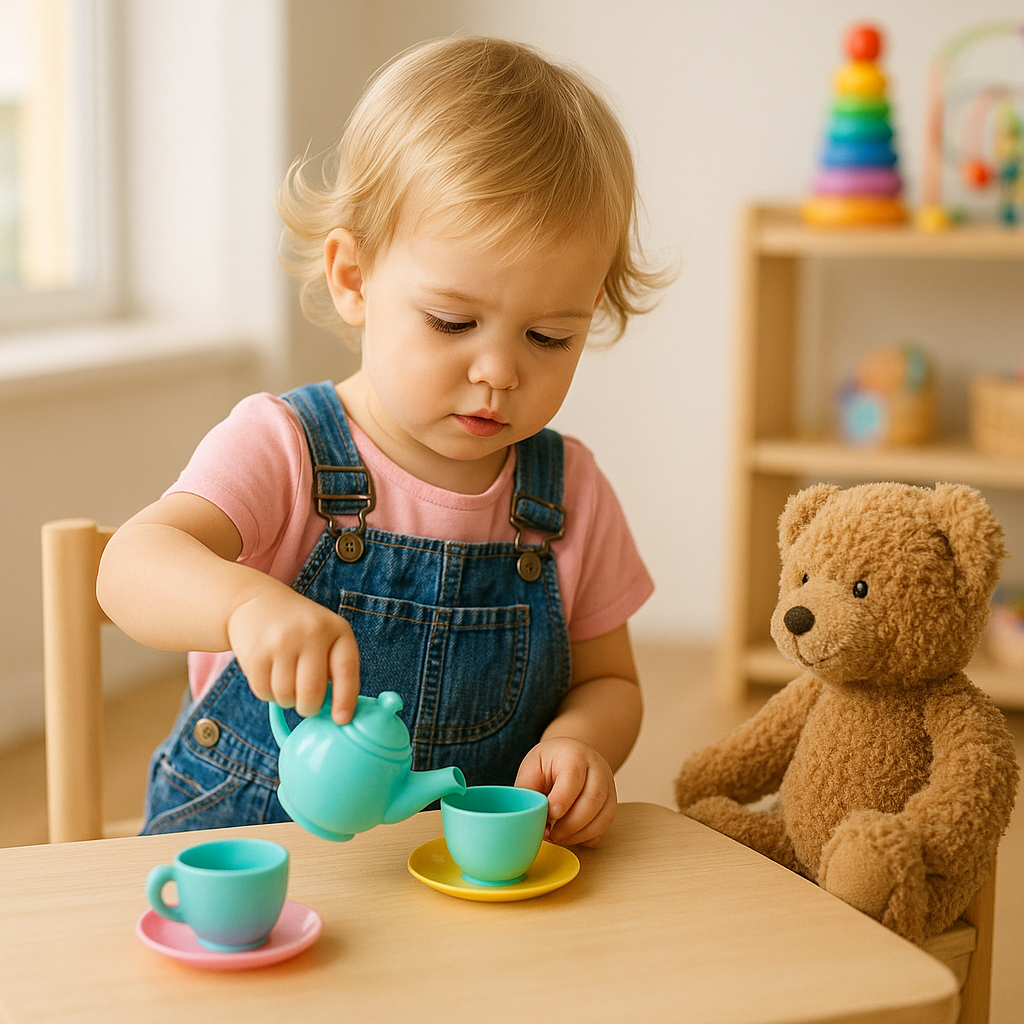Engaging Activities for 30-Month-Olds: Fun and Educational Play Ideas

What are the Best Activities for 30-Month-Olds: Engaging Growth-Focused Fun
Engaging in age-appropriate activities is vital as you navigate the developmental milestones with your 30-month-old. At this age, toddlers bloom with curiosity and energy, making it an ideal time to introduce activities that foster growth in various areas such as motor skills, language development, and social interaction. Balance and fine motor skills are honed through playful tasks, while language can be nurtured by interactive story time and naming games that tie into their expanding vocabulary.
Socializing is also a pivotal part of development for 30-month-olds. Group play allows them to learn sharing, cooperation, and empathy, which are essential skills for their progression into preschool years. Structured and unstructured playtimes both play roles in offering opportunities for cognitive and emotional growth. By selecting the right type of activities, you set a strong foundation for their learning journey.
Key Takeaways
- Engaging in developmental activities is crucial at 30 months.
- Balance between social, cognitive, and motor skills development.
- Activities should offer a mix of structured and creative play.
Child Development at 30 Months
At 30 months, your child is rapidly advancing in both physical and cognitive development. They are likely exhibiting increased verbal abilities, often putting together longer and more complex sentences. This growth facilitates their ability to communicate needs and feelings more effectively than before.
Motor skills are also improving significantly; you may notice your child becoming more coordinated in their movements, running with greater stability, and even starting to jump with both feet. Fine motor skills are refining as well, as 30-month-olds can build towers using blocks and may show a preference for using one hand over the other, which indicates the development of a hand preference.
Here's a brief overview of the key developmental milestones for a child at 30 months:
- Language: Can follow simple instructions and understands use of everyday items.
- Cognitive: Begins to play pretend and make-believe, indicating creative cognition.
- Motor Skills: Improved balance, starts to master climbing, kicking, and might begin potty training.
- Social: Increased interest in playing with other children and can express a range of emotions.
During this time, children display an ability to learn from external stimuli like videos with supportive scaffolding, which aids in their cognitive development and helps in memory retention of new information and skills.
Engaging in age-appropriate activities is critical to support your child’s growth. Opt for toys and games that challenge their burgeoning skills yet are still enjoyable. Your 30-month-old may also benefit from looking at pictures to reinstate memory of events, a sign of their maturing memory skills.
Activities for 30-Month-Olds
Engaging your 30-month-old in a variety of activities is critical for their development. At this age, children benefit from supportive scaffolding, which helps them in learning and thinking symbolically. Here's a list of optimal activities to support your toddler’s growth:
-
Pretend Play: Provide props for your child to enact different scenarios, fostering their imagination and spontaneous generalization of event knowledge.
-
Crafting: Encourage creative expression with simple crafts using non-toxic materials like playdough, large crayons, and construction paper.
-
Outdoor Exploration: Visit a park or playground, allowing your child to socialize and play which benefits both their physical and emotional development.
-
Reading Time: Introduce books with more complex stories and engage by asking predictive questions to aid in memory retrieval and language skills.
-
Musical Activities: Singing songs, dancing, or playing with musical instruments helps in auditory development and motor skills.
-
Puzzle Games: Age-appropriate puzzles challenge your toddler’s problem-solving skills and improve hand-eye coordination.
Remember, each child is unique, so it's important to notice which activities they are most drawn to and support those interests. Regularly incorporating these activities may enrich your child's learning experience and support their development during these formative years.



















